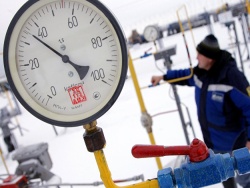
When the richest man in China, who have succeeded in real estate, calls the country’s real estate market “the biggest bubble in history” is not a good sign.
Wang Jianlin, the billionaire owner of Dalian Wanda Group, said in an interview with CNN last week: “the Government has tried all measures such as limiting purchases or loans, but none of them works.
Average housing prices across China fell 1.3 percent from July to August, according to government data. Prices are rising for 17 consecutive months. In September was also the biggest increase in a single month since the beginning of 2011.
The Shanghai Composite index has fallen 15% since 1 January this year. If this trend continues, in 2016 will be the biggest drop over the past five years. Sales on the stock exchange also fell to its lowest level in two years, it suggests that investors put their money in other sectors, fearing the collapse of the market last year.
In 2016, the real estate sector of China is the biggest beneficiary.
At the macro level, Chinese retail investors are like children playing soccer: they rush to where a potential sale. Over the last few years, they rushed from stock to real estate and back, rarely showing an interest in the goods.
The property is now the hottest market. The situation escalated to such an extent that experts inside and outside China are sounding the alarm.
MA Jun, chief economist at the research division of the people’s Bank of China, in an interview with Yicai.com recently named the real estate market bubble.
“People’s daily” published an editorial last week, which expressed deep concern about the “boiling” of the real estate market. “Looking at average property prices and incomes of physical persons in Shenzhen, it becomes obvious that for a person with average income buying a house is 90 square meters is more than 1 200 months, that is, 100 years without eating or drinking, writes the investor Tang Jun about the unavailability of housing in Shenzhen. — China became an economic power, but the real estate market is mine, and the worst thing is that nobody knows when it detonates”.
Dangerous business model
Low interest rates mean that even developers with limited resources can benefit from relatively cheap onshore bond market. The developers acted aggressively and without hesitation, bought land for development.
Economists at Deutsche Bank AG said that “a clear sign of a bubble is that the auction price of land is so inflated that new developments make sense from an economic point of view, but only if property prices will grow at the same pace.
Such representations were circulated to investors in the United States ten years ago, before the mortgage crisis, when lenders ignored the risks of default or foreclosure, suggesting that the ever-increasing housing prices kompensiruet any loss.
After studying the latest price land auction in ten major cities of China, Deutsche Bank analysts came to the conclusion that if real estate prices stop rising today, half of the current developments will become unprofitable. Zhang Zziwa, chief economist for China at Deutsche Bank believes that a serious correction can happen only in 2018.
A dual approach
Local and regional authorities have tightened measures to tame the market-level transactions, such as limit prices and quantities of real estate in the same family, and also restricted not local buyers, requiring registration at the place of residence (Hukou).
Different cities took different approaches. Shanghai, for example, took the decision to suspend land auctions, Guangzhou limited prices. Such tactics had a negative effect, as buyers have found other channels to purchase the property.
Most of the loans were tied to the real estate market. According to official data, in August 71% of new loans went to the mortgage, and not in small and medium businesses, which, according to the calculations of the authorities, needs to stimulate the economy.
But it’s too easy to shift the blame to rate and regulatory policy at the national level. The fact that China is increasingly becoming a country with two divergent economies.
Talk about the real estate bubble mostly apply to cities of the first and second levels and coastal areas of China, where real estate is perceived as more secure, compared to other onshore investments.
Other Chinese cities have excess housing inventory and the market is in long-term decline. Especially in the Northern and North-Eastern China, where the economy depends on the coal and steel industry is in decline.
After several years of excess construction in the provinces of Liaoning, Jilin and Inner Mongolia has accumulated more than four years of sales in accordance with the London-based Lombard Street Research. This means that it will take more than four years to sell already built homes at the current rate.
“The province with excess construction (more than 3 years of sales) accounted for 20% of the total volume of investments in housing construction over the past five years, writes Michelle Lam of Lombard Street Research in a research note. — The construction of housing in these provinces has decreased over the past two years and will continue to decline for several more years, which will serve as a counterweight to the overall growth of investment in housing”.








